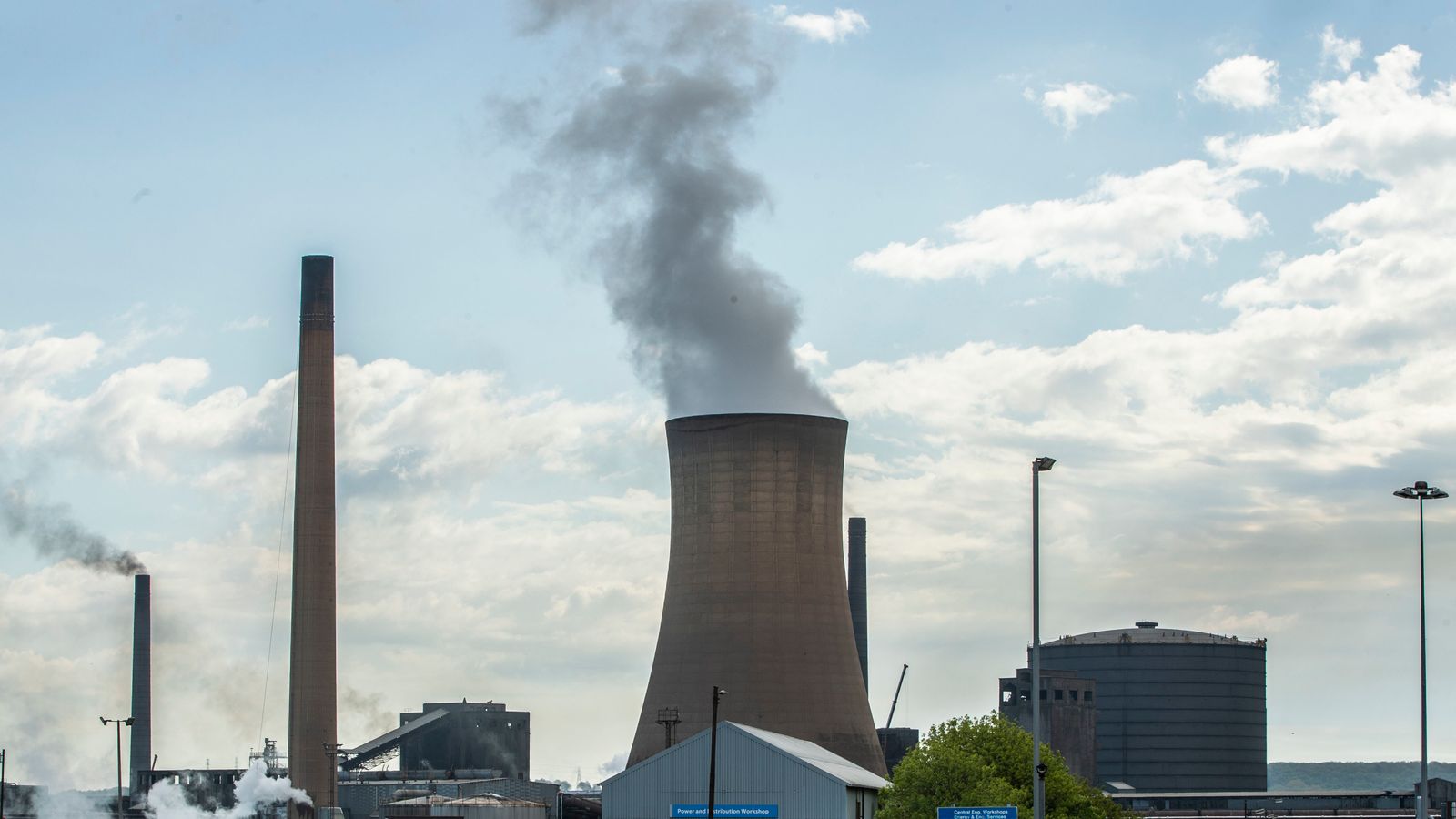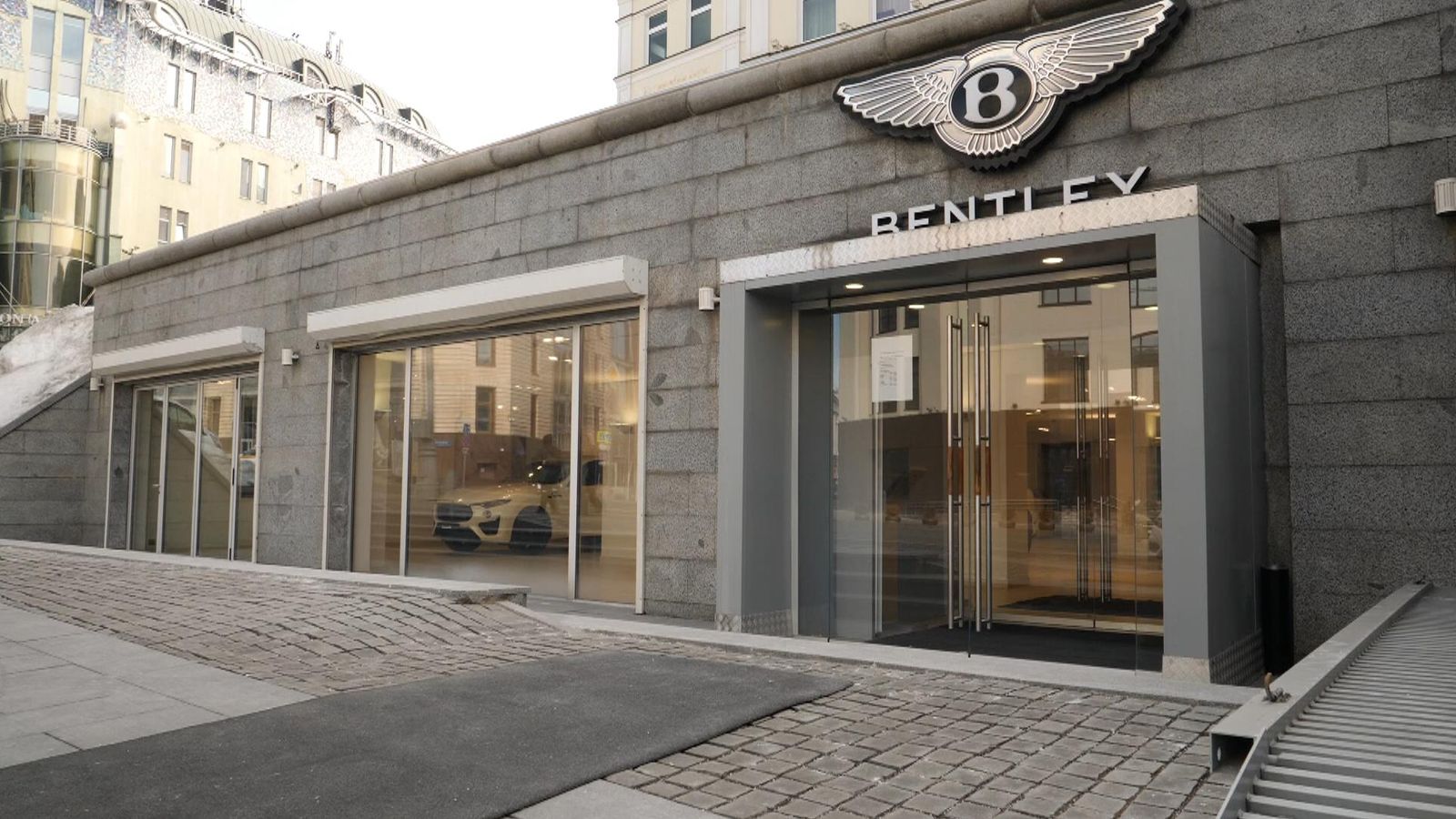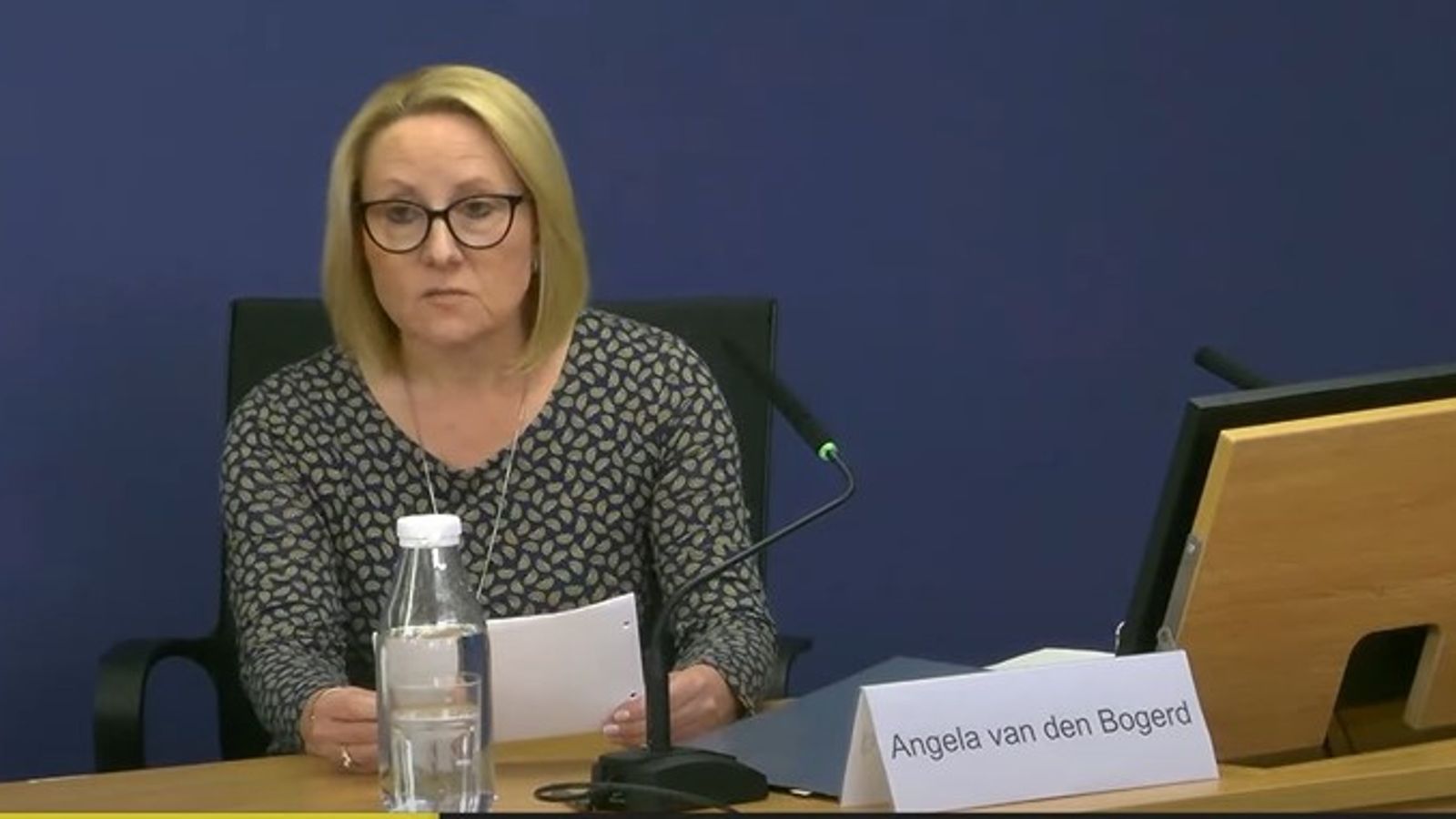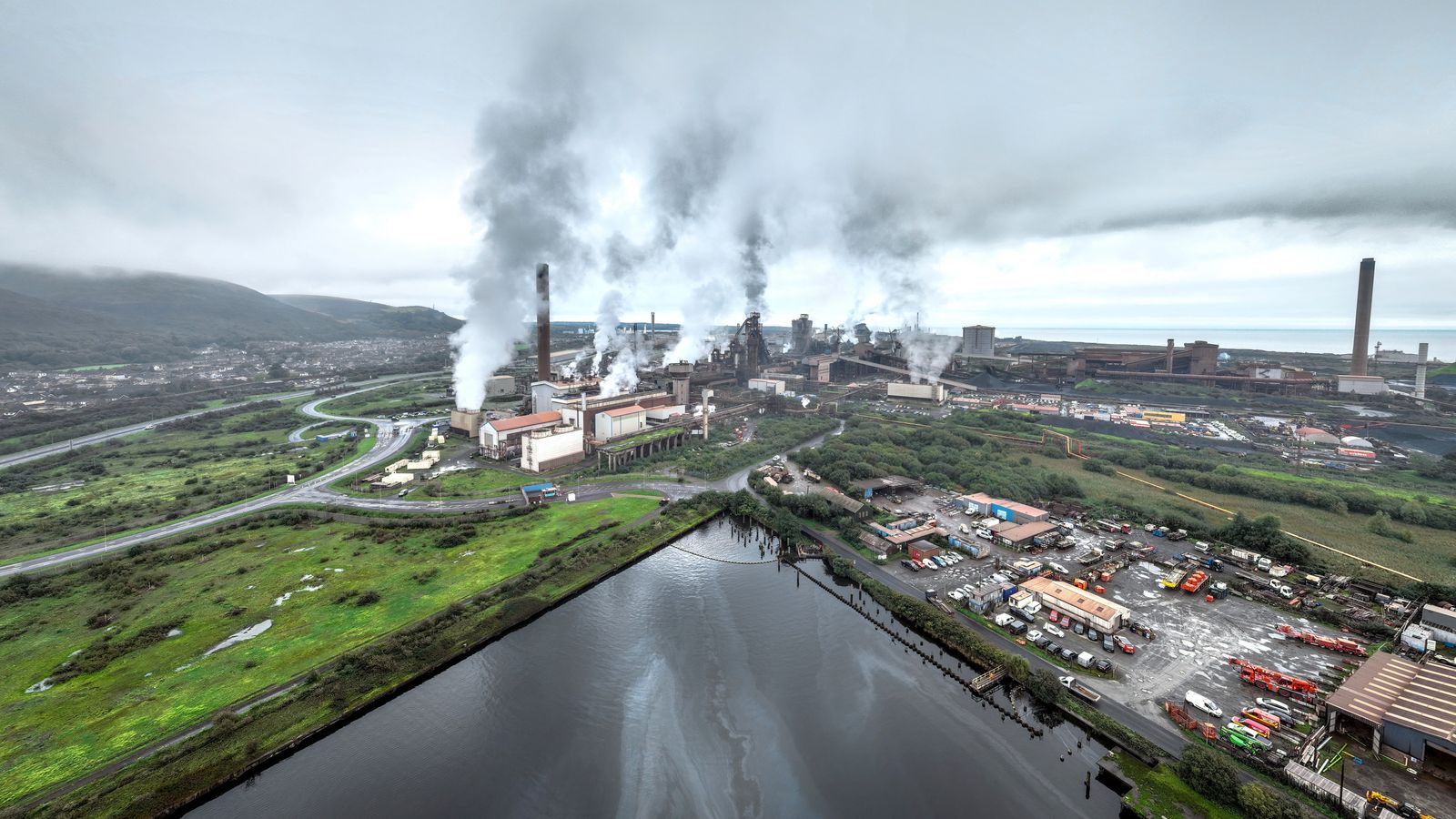The business secretary, Grant Shapps, has told British Steel’s Chinese owner that proposals to make hundreds of workers redundant are “unhelpful” amid negotiations over a £300m taxpayer support package.
Sky News understands that Mr Shapps wrote to Li Huiming, Jingye Group’s chief executive, this week prior to the public disclosure of its plans to axe 800 jobs at the UK’s second-biggest steel producer.
British Steel confirmed for the first time on Thursday that it was “reluctantly having to consider cost-cutting” but did not specify the number of jobs that were at risk.
Nusrat Ghani, the business minister, told MPs that talks between the government and British Steel were ongoing, even though the conditions attached to the taxpayer aid include a six-month moratorium on redundancies and a guarantee to preserve an unspecified proportion of the company’s workforce for the next decade.
A Whitehall source said that although the discussions were continuing, the job cuts cast an “unhelpful” shadow over them.
“The timing of this is deeply unwelcome,” the source added.
In its statement, British Steel said Jingye had invested £330m in capital projects since taking ownership of the business in 2020.
“Jingye is committed to our long-term future but decarbonisation is a major challenge for our business and, like most companies, we’re facing significant challenges because of the economic slowdown, rising inflation and exceptionally high energy prices,” it said.
“For example, last year our energy bill rose by £120m while we’ve also faced an increase of over £70m in our annual carbon costs.”
It said that steelmaking in Britain was “uncompetitive” in an international context.
“Unfortunately, like many other businesses we are reluctantly having to consider cost cutting in light of the global recession and increased costs.
“We have discussed this in preliminary talks with the Trade Unions in which we shared the challenges we face.
“We look forward to working closely with them to ensure a long-term safe and sustainable future for the company, thousands of employees and many more in people in our supply chain.”
The proposed job cuts would focus principally on the Scunthorpe plant in north Lincolnshire where British Steel is based, and would involve the closure of coke ovens, although Scunthorpe’s two blast furnaces and other mills within the Chinese-owned group would continue to operate.
Last week, Sky News revealed that British Steel and larger rival Tata Steel would be required to guarantee thousands of jobs until 2033 in return for £600m of government support to help decarbonise the industry.
Any taxpayer funding is to be linked to the replacement of blast furnaces at the company’s sites with greener electric arc furnaces, while Jingye would be obliged to invest at least £1bn in the business by 2030.
A decision to grant the state aid would not be without controversy, given British Steel’s Chinese ownership and doubts about its adherence to financial commitments made when it bought the business out of insolvency proceedings in 2020.
In a letter to Jeremy Hunt, the chancellor, in December, Mr Shapps and Michael Gove, the levelling-up secretary, warned that British Steel’s demise could cost the government up to £1bn in decommissioning and other liabilities.
They cautioned Mr Hunt that British Steel “does not have a viable business without government support”.
“Closing one blast furnace would be a stepping-stone to closure of the second blast furnace, resulting in a highly unstable business model dependent on Chinese steel imports,” Mr Shapps and Mr Gove wrote.
“Given the magnitude of the liabilities due to fall on HMG in the event of blast furnace closure, and following the PM’s steer, we would like officials to test whether net Government support in the region of £300m for British Steel could prevent closure, protect jobs and create a cleaner viable long-term future for steel production in the United Kingdom.”
They also argued that retaining sovereignty over steel production was critical to the UK economy.
“Every other G20 nation has maintained domestic steel production and, while we do not think that this should come at any cost, we do believe it is in HMG’s interest to offer well-designed and targeted funding which unlocks private investment, achieves a good outcome for taxpayers, and enables transformed , decarbonised and viable domestic steel production to continue in the UK in the long-term,” Mr Shapps and Mr Gove wrote.
“We do not want to become reliant on steel sources elsewhere in the same way that energy security has become self-evidently important.
British Steel employs about 4,000 people, with thousands more jobs in its supply chain dependent upon the company.
Tata Steel employs substantially more people in the UK, including more than 4,000 at its Port Talbot steelworks in Wales.
According to last month’s letter, British Steel had already informed the government that it could close one of the Scunthorpe blast furnaces as soon as next month, with the loss of 1,700 jobs.
This would be “followed by the second blast furnace closing later in 2023, creating cumulative direct job losses of around 3,000”, Mr Shapps and Mr Gove wrote.
In May 2019, the Official Receiver was appointed to take control of the company after negotiations over an emergency £30m government loan fell apart.
British Steel had been formed in 2016 when India’s Tata Steel sold the business for £1 to Greybull Capital, an investment firm.
As part of the deal that secured ownership of British Steel for Jingye, the Chinese group said it would invest £1.2bn in modernising the business during the following decade.
Jingye’s purchase of the company, which completed in the spring of 2020, was hailed by Boris Johnson, the then prime minister, as assuring the future of steel production in Britain’s industrial heartlands.






